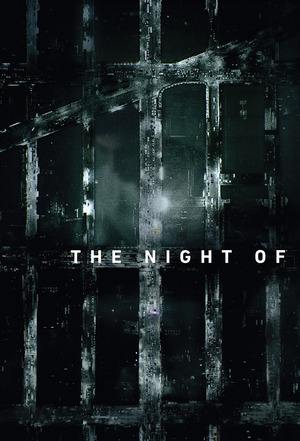
Created by: Richard Price, Steven Zaillian
Starring: Riz Ahmed, John Turturro, Bill Camp, Peyman Moaadi, Poorna Jagannathan
🕵️ Introduction
The Night Of is a haunting HBO mini-series that dissects the American justice system through the lens of a single criminal case. More than just a whodunit, the series explores the psychological, social, and legal consequences of an ordinary young man being thrust into a brutal system. With razor-sharp writing, morally gray characters, and realistic pacing, the show immerses the viewer into a world where truth is negotiable and justice feels elusive.
This recap explores the full plot, character arcs, and overarching themes that make this 8-episode drama so chillingly unforgettable.
🚖 Episode 1: The Beach
Nasir "Naz" Khan, a shy, bookish Pakistani-American college student living in Queens, borrows his father’s cab to attend a party. Along the way, a mysterious woman named Andrea gets in, mistaking him for a real cabbie. She invites him back to her place, where they drink, take drugs, and have sex. Later that night, Naz wakes up to find her dead, stabbed multiple times. Panicked, he flees the scene but is eventually pulled over by police for a minor traffic offense. Clues quickly link him to the murder.
The first episode ends with Naz being arrested for Andrea’s murder, initiating a cascade of legal events that will transform him and everyone around him.
⚖️ Episodes 2–3: The System Takes Hold
Once processed into jail, Naz is treated like a hardened criminal. Despite his silence and visible fear, the system begins to assume his guilt. A shoddy defense lawyer first handles his arraignment before John Stone, a rumpled, eczema-ridden ambulance-chaser, steps in to offer representation. Stone believes in Naz’s innocence—or at least believes he deserves a fair defense.
Detective Box, a seasoned but weary investigator, becomes convinced of Naz’s guilt, even though some pieces don’t add up. Meanwhile, Chandra Kapoor, a young lawyer from a prominent firm, is brought on to assist the defense. She quickly becomes emotionally invested in Naz’s fate.
🧱 Life on Rikers Island
Inside Rikers Island, Naz is introduced to the brutal realities of prison life. He’s targeted initially but finds unexpected protection from Freddy Knight, a former boxing champion turned powerful inmate. Freddy mentors Naz, but at a cost—he gradually draws Naz deeper into prison culture.
In parallel, Naz undergoes a transformation. His behavior shifts, he begins using drugs, and his moral boundaries start to blur. This psychological deterioration mirrors how incarceration corrupts even the innocent. By mid-series, Naz is barely recognizable from the quiet student he once was.
🔍 Alternative Suspects and Hidden Evidence
Stone begins to doubt the clean narrative laid out by the prosecution. He follows leads that point toward other potential suspects: Andrea’s creepy stepfather, a mysterious undertaker, and a hearse driver with a violent past. These threads suggest the case may not be as airtight as prosecutors believe.
Meanwhile, Chandra takes bolder steps, including secretly kissing Naz during a prison visit—a decision that will later come back to haunt the defense. Still, her dedication to the case remains unwavering.
🏛️ The Trial
As the courtroom drama unfolds, prosecutor Helen Weiss paints Naz as a cold-blooded killer driven by sexual rage and betrayal. In contrast, the defense attempts to show Naz as a victim of circumstance, failed by an overzealous justice system eager for a conviction.
Stone’s courtroom performance is shaky but honest. He questions the reliability of forensic evidence and the motives of alternative suspects. The turning point comes when Detective Box, now retired, testifies. Although he still believes in Naz’s guilt, he admits that some things about the case never sat right with him.
🧩 The Verdict and Its Consequences
The jury deadlocks, and a mistrial is declared. The prosecution quietly drops the case, unwilling to retry a now complicated, ambiguous situation. Naz is released from Rikers, but the freedom feels hollow.
He returns home a changed man—psychologically scarred, socially alienated, and addicted to drugs. His family has been financially and emotionally devastated. Meanwhile, Stone walks away from the case feeling vindicated but remains the same lonely, afflicted man, now limping through life without fanfare or fame.
🎭 Themes & Symbolism
- The Fragility of Identity: Naz’s transformation inside prison mirrors how quickly society can alter one's self-conception through labels like “criminal.”
- Systemic Injustice: The show critiques how the American legal system is more concerned with efficiency and image than actual truth.
- Moral Ambiguity: From Freddy’s protection to Chandra’s ethical lapses, the show resists clean lines between right and wrong.
- Physical Decay: Stone’s eczema serves as a metaphor for how the system wears people down—slowly, painfully, irreversibly.
🧠 Final Reflections
The Night Of isn’t a story about innocence or guilt—it’s about how systems consume individuals, turning nuance into certainty and people into statistics. It’s a story where the “truth” becomes irrelevant in the shadow of bureaucracy and public perception.
Even though Naz walks free, he’s not the same person. And that's the tragedy: a system built to protect justice may still destroy lives, whether guilty or not. The series doesn't offer easy answers—only haunting realism and the question: What if it were you?